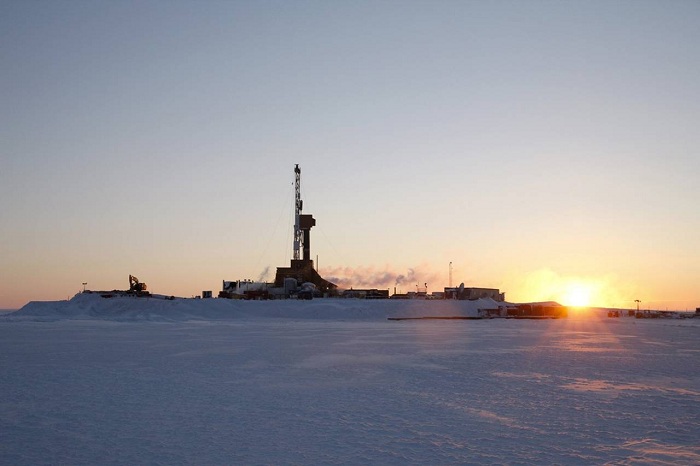Oil explorer claims major Alaskan find

The company says it expects to be able to extract between 1.8 billion and 2.4 billion barrels from the discovery, probably using barges built along the Gulf Coast, then towed to Alaska and permanently sunk in the bay to create man-made drilling islands.
If those initial estimates prove to be correct, the discovery would be substantial—larger than Exxon Mobil Corp.’s 2015 discovery off the coast of Guyana in South America.
“It is not going to be easy, but we’ve had projects like this around the world,” said Caelus Energy Chief Executive James Musselman. He previously led Kosmos Energy Ltd. and the former Triton Energy, exploration firms that made giant finds off the west African coast.
Caelus said it planned to build an $800 million, 125-mile pipeline that will carry the oil underneath state-owned waters to connect with existing pipelines.
That idea likely will generate strong support from a state grappling with plummeting oil revenue. If Alaska can’t find a way to reverse steep declines in its oil production, which are putting the Trans Alaska Pipeline in jeopardy of freezing up, it could face a near-total collapse of the oil industry and its entire economy. Adding new barrels from Smith Bay could extend the pipeline’s life.
Alaska Gov. Bill Walker said on Tuesday that the find underscores why it is important that Arctic land remains open to further exploration.
“In this day and age of technology and regulatory requirements, I am sure it will be done safely,” he said. “We look forward to the discovery being turned into oil in the pipeline.”
A new pipeline in far northern Alaska, which will connect to the Trans Alaska Pipeline, is likely to encounter environmental opposition.
In the 1970s, when oil was first discovered in Alaska, the find was welcomed by a nation shocked by high prices and the anxiety of Middle Eastern producers threatening to stop selling their oil to the U.S.
In recent years, a well-organized environmental movement has blocked new pipelines in an attempt to make it difficult or even impossible to develop new fossil fuel reserves.
“We can’t afford to imperil our coastal communities and our climate with this dangerous drilling, especially as there are increasingly affordable and accessible clean energy solutions,” said Michael Brune, executive director of the Sierra Club.
Regardless, such a project would not be simple or easy, making tapping the oil find challenging, experts said.
“It is a massively complex, massively expensive undertaking to get that (oil) to market,” said Cody Rice, a principal analyst at energy consultancy Wood Mackenzie and a former economist for Alaska’s Division of Oil and Gas.
Royal Dutch Shell PLC abandoned plans to explore for oil in deep federal waters off Alaska after it drilled a dry well, following months of public protests about its plans.
So far, Caelus has drilled two wells, six miles apart, to support its estimate that there could be as much as six billion barrels of oil under Smith Bay. It plans to drill a third well in January 2018.
Right now, wells can only be drilled in winter months and the company didn’t finish analyzing the results of the first two wells to plan to drill a third this winter.
Mr. Musselman said he was counting on strong support from Alaska to help push the project through required federal permits.
“The state of Alaska is very, very hungry for this kind of development,” he said. “I think the state of Alaska will put their shoulder down to support this.”















































